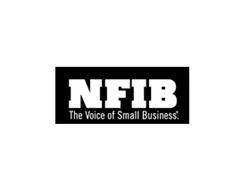NFIB: Senate Conducts Card Check Hearings
Washington, DC, March 28, 2007--
"Eliminating the secret-ballot process opens up small-business employees to union intimidation and excludes small-business owners from the decisions affecting their business and employees," said Dan Danner, executive vice president of NFIB. "Small businesses will be one of the most targeted – and harmed – groups in this last-ditch effort by unions to reverse the trends of their decreasing membership."
Small businesses are especially vulnerable to well-financed union organizers. Election statistics from the National Labor Relations Board suggest that the bulk of card-check unionization campaigns will unfairly target small businesses. Of the more than 2,600 representation elections conducted by the NLRB in 2005, 70 percent involved bargaining units of fewer than 50 employees. In addition to being a significant target by union organizers, small businesses are also the most vulnerable to tactics associated with union authorization cards, since they often are less likely to have appropriate information or labor counsel, and are more susceptible to complicated legal restrictions.
Compulsory, binding arbitration would also be mandated in this card-check legislation.
"Allowing a government official to be the primary decision maker when it comes to the wages and benefits of a small business' employees is unacceptable to our members," said Danner. "NFIB will continue to oppose legislation that compromises the rights of small-business owners to establish workplace policies and benefit plans that best suit their business and their employees."
